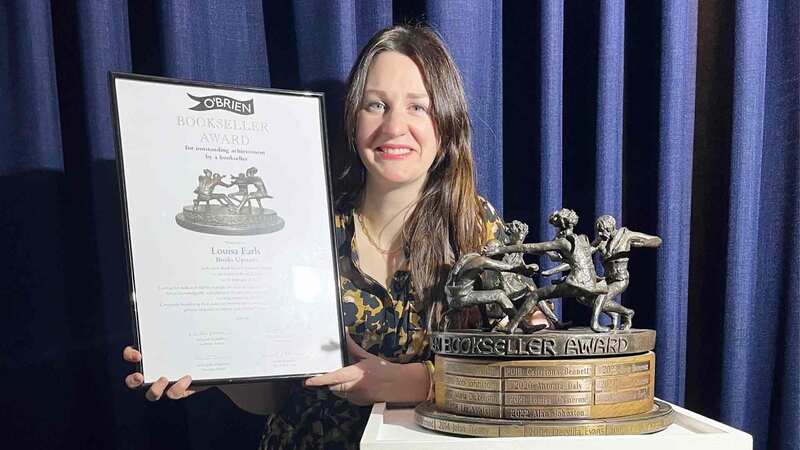You are viewing your 1 free article this month. Login to read more articles.
We need a new moral right
AI mimicry of authors requires a whole new subsection of law.
The UK book trade stands at a crossroads. Artificial intelligence is reshaping the way content is created, marketed and consumed. While technological progress often brings opportunities, it also introduces challenges that demand urgent attention. One such challenge is the rise of AI-generated works that mimic the style of real authors. These works can be passed off as original, eroding the integrity of authorship and undermining the trust that underpins the book industry.
Existing moral rights under UK copyright law – such as the right to attribution or the right to object to false attribution – fall short in addressing this issue. It is time for the industry to consider the introduction of a new moral right: the Right to Protection Against AI Mimicry.
In the UK, authorship is not just a legal construct but a cornerstone of the publishing ecosystem. Readers connect deeply with authors, drawn to their unique voices, perspectives and authenticity. When an AI-generated book mimics an author’s style without their consent, it undermines this connection. Worse, it has the potential to damage an author’s reputation, confuse readers and dilute the value of the original works.
Consider this scenario: a well-known author finds themselves embroiled in controversy when a book, falsely attributed to them, is revealed to be an AI-generated imitation. Even if no explicit claims of authorship were made, the damage to the author’s brand and reader trust could be irreversible. For publishers and booksellers, this erodes the foundations of trust that underpin book sales and marketing campaigns.
The nuances of mimicry, where style rather than content is replicated, fall outside traditional copyright’s purview
UK copyright law provides a set of moral rights to protect authors, but these rights are inadequate in the face of AI-generated mimicry:
- Right of Attribution: this paternity right ensures an author is recognised for their work, but it must be actively asserted. It does not account for AI-generated works that emulate an author’s style without claiming direct authorship.
- Right of Integrity: this protects against derogatory modifications that harm an author’s reputation, but it does not extend to entirely new works created by AI in the author’s style.
- Right to Object to False Attribution: while this addresses mislabelling, it does not cover the use of an author’s style to produce works that deceive readers into associating the work with them.
- Right of Privacy: relevant to visual media (including photographs, film and video), this right is entirely disconnected from the textual domain and provides no protection against AI mimicry.
The gaps are clear. AI tools are not bound by the same creative constraints as human authors. They can generate works en masse, making the potential for abuse particularly high. Without robust legal safeguards, authors remain vulnerable.
The introduction of a new moral right to combat AI mimicry would safeguard authors and strengthen the integrity of the UK book trade. Here’s how it could function:
- Explicit Consent for Training and Use: any AI model trained on an author’s works would require explicit consent from the author or their estate. This ensures authors have control over how their creative identity is used.
- Legal Recourse Against Impersonation: authors would have the ability to take legal action against the creation, publication or distribution of AI-generated works that mimic their style without permission.
- Transparency Obligations for AI-Generated Content: publishers, platforms, and content creators would be required to clearly disclose when a work is AI-generated, ensuring readers are not misled.
- Clear Scope and Boundaries: this right would be designed to protect against bad-faith mimicry without stifling legitimate creative uses of AI, such as collaborative tools used with the author’s approval.
Introducing this moral right would bring multiple benefits:
- Protecting authorial integrity: authors’ reputations and creative legacies would be shielded from harm caused by unapproved AI-generated works.
- Maintaining reader trust: transparent labelling of AI-generated content would help preserve the authenticity readers expect from the books they purchase.
- Encouraging ethical AI development: developers and publishers would be incentivised to adopt ethical practices when using AI to create content.
- Strengthening legal frameworks: a proactive approach to addressing AI challenges would position the UK book trade as a leader in adapting to technological change.
Some may argue that such a moral right could stifle innovation or lead to excessive litigation. However, this right would not ban the use of AI in creative processes. Instead, it ensures that AI is used responsibly and transparently, respecting the rights of authors whose works form the foundation of these technologies.
Others might point to existing copyright protections as sufficient. While copyright law provides a degree of protection, it was not designed with AI-generated content in mind. The nuances of mimicry, where style rather than content is replicated, fall outside traditional copyright’s purview.
The UK book trade has always been an industry that champions creativity, authenticity and fairness. In the face of the AI revolution, we must uphold these values. By advocating for a new moral right to protect against AI mimicry, we can ensure that authors remain at the heart of the industry.
This is not merely a legal issue but a cultural one. The stories we tell and the voices that tell them define who we are. Safeguarding the identity and integrity of those voices is not just in the interest of authors but in the interest of the entire book trade.



















